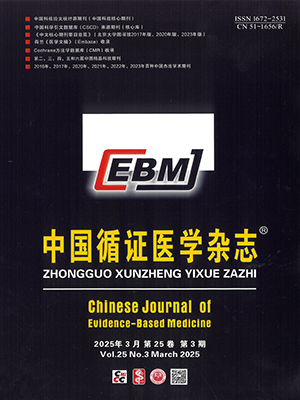| 1. |
Sharma A,Jacob A,Tandon M,et al.Orphan drug:development trends and strategies.Journal of Pharmacy and Bioallied Sciences,2010,2(4):290-299.
|
| 2. |
马端,李定国,张学,等.中国罕见病防治的机遇与挑战.中国循证儿科杂志,2011,6(2):81-82.
|
| 3. |
龚时薇,张敏,邓秀玲,等.对我国罕见病与罕用药界定的思考.中国新药杂志,2006,15(15):1225-1229.
|
| 4. |
我国孤儿药市场发展现况及前景预测分析.Available at:http://www.biotech.org.cn/information/100584.
|
| 5. |
Brewer GJ.Drug development for orphan diseases in the context of personalized medicine.Translational Research,2009,154(6):314-322.
|
| 6. |
丁锦希,季娜,白庚亮.我国罕见病用药市场保障政策研究.中国医药工业杂志,2012,43(11):959.
|
| 7. |
European Medicines Agency.Regulation (EC) No 141/2000 on orphan medicinal products.Available at:http://www.ema.europa.eu/ema.
|
| 8. |
European Medicines Agency.Brochure of Orphan medicinal product designation.Available at:http://www.ema.europa.eu/ema.
|
| 9. |
Joppi R,Garattini S.Orphan drugs,orphan diseases.The first decade of orphan drug legislation in the EU.European journal of clinical pharmacology,2013,69(4):1009-1102.
|
| 10. |
Haffner ME,Whitley J,Moses M.Two decades of orphan product development.Nat Rev Drug Discov,2002,1(10):821-825.
|
| 11. |
FDA.Department of Health and Human Services,Report to Congress 2011:Improving the Prevention,Diagnosis and Treatment of Rare and Neglected Diseases.Available at:http://www.fda.gov/downloads/AboutFDA/CentersOffices/CDER/UCM266374.pdf.
|
| 12. |
Braun MM,Farag-El-Massah S,Xu K,et al.Emergence of orphan drugs in the United States:a quantitative assessment of the first 25 years.Nature Reviews Drug Discovery,2010,9(7):519-522.
|
| 13. |
Thorat C,Xu K,Freeman S N,et al.What the Orphan Drug Act has done lately for children with rare diseases:a 10-year analysis.Pediatrics,2012,129(3):516-521.
|
| 14. |
Japan,Ministry of Health,Labour and Welfare,Available at:http://www.mhlw.go.jp/english/policy/health-medical/pharmaceuticals/orphan_drug.html.
|
| 15. |
Scott D L,Alder S,Usui E,et al.Orphan drug programs/policies in Australia,Japan,and Canada.Drug information journal,2001,35(1):1-16.
|
| 16. |
Japan,National Institute of Biomedical Innovation.Available at:http://www.nibio.go.jp/shinko/orphan/english/.
|
| 17. |
Australian Government Department of Health.Orphan drug program.Available at:http://www.health.gov.au/internet/main/publishing.nsf/Content/health-archive-mediarel-1997-ceorphan.htm.
|
| 18. |
Panju AH,Bell CM.Policy alternatives for treatments for rare diseases.Canadian Medical Association Journal,2010,182(17):E787-E792.
|
| 19. |
Singapore.Orphan drugs in Singapore,Available at:http://www.orpha.net/consor/cgi-bin/Education_AboutOrphanDrugs.php?lng=EN&stapage=ST_EDUCATION_EDUCATION_ABOUTORPHANDRUGS_SIN.
|
| 20. |
Singapore,Attornay General's Chambers,Medicines (Orphan Drugs)(Exemption) Order.Available at http://statutes.agc.gov.sg.
|
| 21. |
Orphan drugs in Singapore.Available at:http://www.orpha.net/consor/cgi-bin/Education_AboutOrphanDrugs.php?lng=EN&stapage=ST_EDUCATION_EDUCATION_ABOUTORPHANDRUGS_SIN.
|
| 22. |
Taiwan Foundation for Rare Disorders.Rare Disease Control and Orphan Drug Act.Available at:http://www.tfrd.org.tw/english/laws/cont.php?kind_id=25&top1=What%20we%20do&top2=Public%20Policy%20Issues&top3=Rare%20Disease%20and%20Orphan%20Drug%20Act.
|
| 23. |
at:http://www.bpipo.org.tw/media/mdnews/64/6402.html.
|
| 24. |
Inidan.Orphan Diseases-An Indian Perspective.Available at:http://www.pharmainfo.net/reviews/orphan-diseases-indian-perspective.
|
| 25. |
Labour promises special fund for orphan drugs.Available at:http://www.radionz.co.nz/news/national/215945/labour-promises-special-fund-for-orphan-drugs.
|
| 26. |
Wang JB,Guo JJ,Yang L,et al.Rare diseases and legislation in China.Lancet,2010,375(9716):708-709.
|
| 27. |
国家食品药品监督管理局.新药注册特殊审批管理规定.Available at:http://www.sda.gov.cn/WS01/CL0058/35157.html.
|
| 28. |
丁锦希,季娜.中美罕用药特殊注册审评制度的比较研究.中国医药工业杂志,2011,42(11):873-879.
|
| 29. |
Kılıç P,Koçkaya G,Yemşen Ö,et al.Orphan drug regulations in Turkey.Journal of Pharmaceutical Health Services Research,2013,4(3):151-153.
|
| 30. |
李定国.关于建立罕见病医疗保障制度的提案.Available at:http://www.alscc.com/_Club/View.aspx?id=944.
|
| 31. |
朱维芳.关于制定《罕见疾病防治法》的议案.Available at:http://www.caijing.com.cn/2009-03-09/110115538.html.
|
| 32. |
张楠,沈爱玲.我国罕用药有关激励政策法规现状及进展.中国医院药学杂志,2013,33(1):63-65.
|




